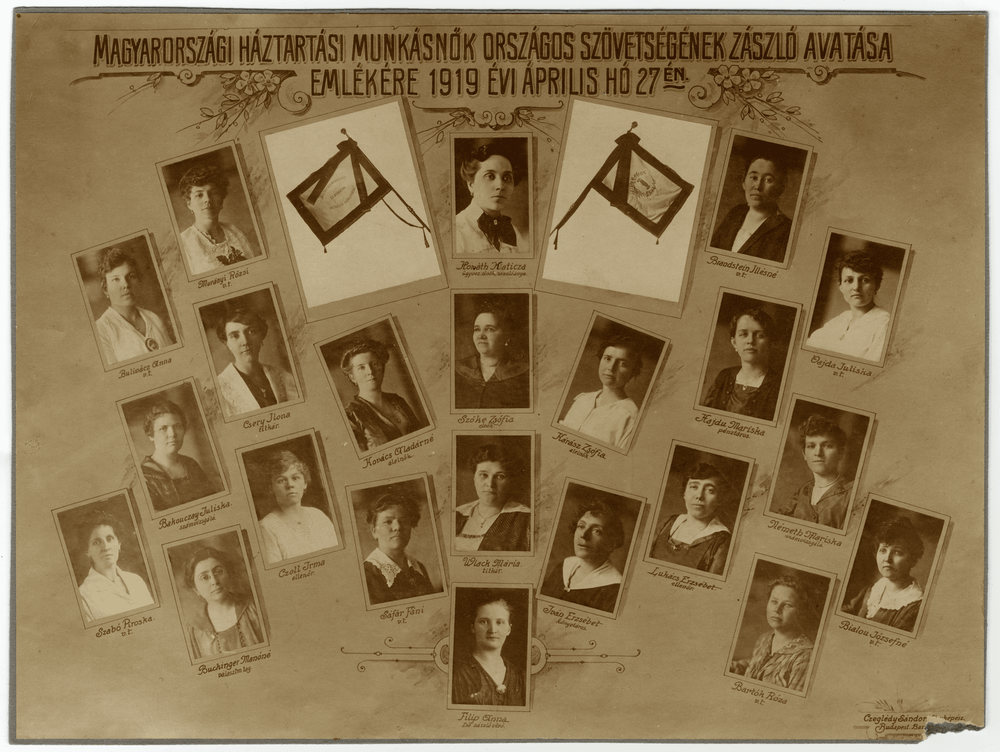Szeréna Ladányi
Szeréna Ladányi (1884–1940), born Lusztig, was a Hungarian teacher, activist, and a prominent figure in the social democratic movement. Through her work in education and publishing, she sought to empower working women, integrate them into the socialist movement, and help them overcome social and economic inequality.
For Ladányi, education was essential for achieving both gender equality and broader social change. As a member of the Social Democratic Party of Hungary, she contributed to the party’s educational initiatives, helping to design programmes that were attentive to women’s needs, and combined practical training with political education. In 1933, she was instrumental in creating the women’s party education programme, developing its structure and content. With her work as educator, Ladányi sought to provide working-class women with the tools to both improve their everyday lives and to assert their rights. She was also a member of the National Federation of Women Household Workers, which united radical activists such as Katicza Horváth and social democratic functionaries like Ladányi.

Tableau “In memory of the flag-raising ceremony of the National Federation of Women Household Workers on April 27, 1919” (Creator: Sándor Czeglédy, source: Hungarian National Museum)
As an editor and regular contributor to the journal Woman Worker (Nőmunkás), Ladányi raised awareness of women workers’ struggles, organized fundraising efforts, and published articles and books highlighting such issues as equal pay and attitudes towards women’s work. She called out the pervasive discrimination and devaluation of women in the world of labour. For example, she perplexed her readers by telling a story about a male worker who, upon learning that women would operate new textile machines, declared that “the machine is not even a machine if not operated by a man”. A creative and independent intellectual, Ladányi nevertheless, as the social democratic women’s movement expanded, increasingly aligned herself with the intentions and instructions of the party leadership.
Ladányi believed that women’s full and equal participation in waged labour was key to women’s full participation in the socialist movement. She organized lectures, debates, and seminars aimed at educating women not only in political theory but also in practical matters like hygiene, childcare, and housework – areas traditionally ignored by male-dominated political structures. One of her notable achievements was organizing the first week-long political seminar for women in Budapest in 1933. She praised the participants for their commitment, noting that “they have put aside all their work for a long time, left their household, their occupation and their family” to engage in political education. These seminars, supported by collective efforts to reduce costs – local women provided accommodation and food for their comrades who had to travel – also fostered solidarity among women workers.
Until her death in 1940, Szeréna Ladányi remained dedicated to the idea that education could transform not only individuals but also society. Her work, although largely forgotten today, laid important foundations for women’s political engagement in Hungary’s labour movement.

